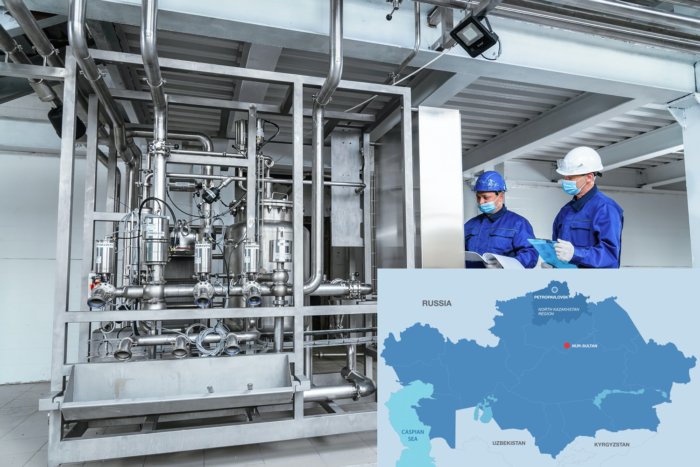NUR-SULTAN – The Eurasian Foods Corporation launched a milk processing plant in late November in Petropavlovsk in the North Kazakhstan region, reported the company’s press service.
The Eurasian Milk plant will process 50,000 tons of milk per year. The volume of finished products will be 14,500 tons per year including 3,500 tons of cheese production. Upon reaching the production capacity, the milk processing capacity will reach 110,000 tons per year.
The four lines installed at the plant will be for the receiving and processing of milk made in Germany, a Swiss line for the production of butter, an Austrian line for the production of cheese and an Italian line for the production of mozzarella-type cheeses.
The first dairy products are expected to hit retail chains since December.
“Despite the unprecedented restrictions related to the pandemic, all the work was done in the shortest possible time frames… It takes time to create a full production line for some dairy products, but we attracted technologists and international experts from Austria, Switzerland, the Baltic countries. We hope that our products will also be available for export in the future,” General Director of Eurasian Milk Plant Andrei Gritsenko at the press conference dedicated to the test launch of the equipment.
The company’s management feels that new jobs will also be available in related industries to provide the region with new opportunities for economic growth. Currently, 150 people work at the plant.
The Eurasian Foods Corporation is one of the leading food industry enterprises in Kazakhstan that produces fats and oils. Deputy Chairman of the Board of Eurasian Foods Corporation Ivan Kolesnikov noted that the dairy processing industry is the new and promising area for the company to provide customers with the high-quality and affordable dairy products.
“Our task is to ensure a minimum cost with maximum quality starting with raw products. It’s possible due to a combination of modern technology, efficient organization and high productivity… We plan to increase the competitiveness of the dairy industry and build long-term trusting relationships with farmers. It is necessary to move from the “we produce less products at higher prices” principle to the “we produce a wide range of products at a competitive price in this segment,’” said Kolesnikov.
Last year, Kazakh President Kassym-Jomart Tokayev set forward the task to strengthen the market positions of North Kazakhstan food producers. In this light, the commissioning of the new plant proves that the food industry in Kazakhstan continues to show potential despite the adverse effects of the pandemic.

